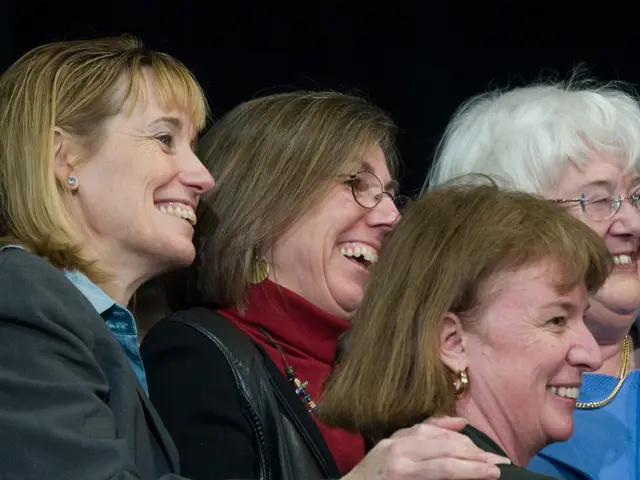Supreme Court rulings at odds with policing 'hateful expressions'
In the wake of the assassination of conservative crusader Charlie Kirk, Attorney General Pam Bondi has threatened to target 'hate speech.' However, her intentions have sparked controversy and raised questions about the limits of free speech as interpreted by the US Supreme Court.
Bondi's comments, made on a podcast, suggested that companies should fire or suspend employees who have celebrated Kirk's death. This stance has been met with criticism from legal experts, who argue that it violates one of the closest limits as interpreted by the Supreme Court regarding exceptions to the First Amendment.
The Supreme Court has a long history of upholding free speech, including speech that some might view as 'hate speech.' In the landmark 1968 decision, Brandenburg v. Ohio, the court struck down an Ohio law that had been used to charge a Klu Klux Klan leader who was captured on video suggesting there might have to be 'some revengeance' for supporting Black Americans.
In another significant case, the Supreme Court unanimously struck down a city ordinance in St. Paul, Minnesota, that barred displays that provoked 'anger, alarm or resentment' based on race, gender, and other factors. The RAV v. City of St. Paul case in 1992 reinforced the court's commitment to protecting free speech, even when it may offend or upset some members of the public.
More recently, in a 7-2 decision two years ago, the Supreme Court ruled that prosecutors must show a person has 'some subjective understanding of the threatening nature of their statements' to win a case regarding 'true threats.' This ruling, in the case of Elonis v. United States, emphasised the importance of intent in determining whether speech crosses the line into unprotected territory.
The Supreme Court's stance on free speech is not limited to criminal cases. In a widely followed trademark case in 2017, the court struck down part of a federal law that denies trademark protection of terms that disparage the living or dead. Justice Samuel Alito stated in the case that 'Speech that demeans on the basis of race, ethnicity, gender, religion, age, disability, or any other similar ground is hateful. But the proudest boast of our free speech jurisprudence is that we protect the freedom to express 'the thought that we hate.''
The Supreme Court's rulings have also influenced cases involving government officials and private companies. For instance, in a case involving the National Rifle Association, the Supreme Court ruled against a New York official who urged banks and insurance companies to cut ties with the gun rights group. Similarly, the court ruled in 1968 that government employers may be allowed to fire employees for certain speech made in an individual capacity if that speech presents a significant challenge to the functioning of an agency or office.
As the debate over free speech continues, Bondi's threats run up against a litany of Supreme Court precedent on the issue. It remains to be seen how her proposed actions will be interpreted and whether they will withstand legal scrutiny.
In the meantime, the decision in NRA v. Vullo has already been used by elite law firms and universities fighting Trump's efforts to punish them in court. The case serves as a reminder that the Supreme Court's commitment to free speech extends beyond political rhetoric and applies to all Americans, regardless of their political beliefs.
Read also:
- United States tariffs pose a threat to India, necessitating the recruitment of adept negotiators or strategists, similar to those who had influenced Trump's decisions.
- Weekly happenings in the German Federal Parliament (Bundestag)
- Southwest region's most popular posts, accompanied by an inquiry:
- Discussion between Putin and Trump in Alaska could potentially overshadow Ukraine's concerns








